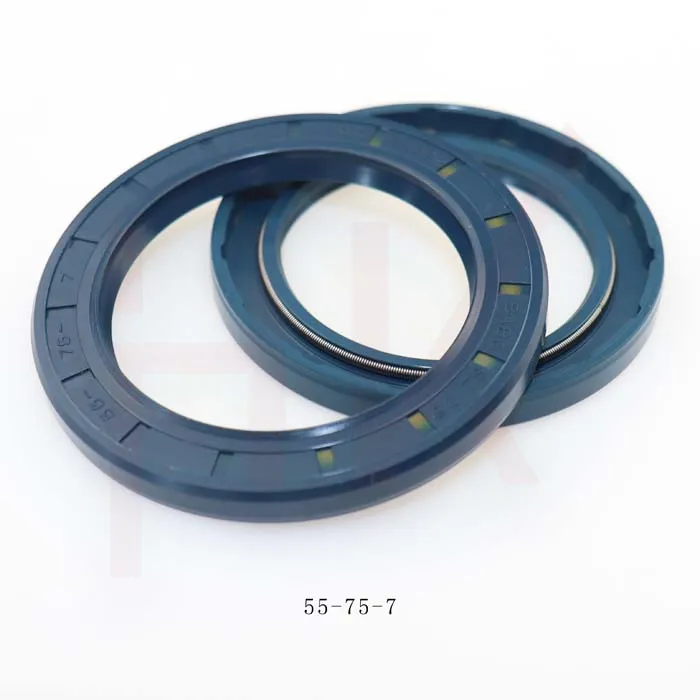Nov . 13, 2024 11:56 Back to list
front wheel oil seal
Understanding Front Wheel Oil Seals Importance, Function, and Maintenance
Front wheel oil seals are crucial components in vehicles, specifically designed to keep lubricants contained within the wheel assembly while preventing dirt, dust, and moisture from infiltrating the system. Despite their small size, these seals play an essential role in the overall performance and longevity of a vehicle's drivetrain, particularly in front-wheel drive setups.
What Is a Front Wheel Oil Seal?
A front wheel oil seal, typically constructed from rubber or a similar synthetic material, serves as a barrier between the rotating components of the wheel assembly and the external environment. Located at the hub of the wheel, this seal encircles the axle shaft and is designed to retain axle oil or other lubricants used within the wheel bearings. The primary function of the oil seal is to prevent leakage while ensuring that the necessary lubrication stays intact to minimize friction and wear.
Importance of Front Wheel Oil Seals
1. Preventing Lubricant Leakage The primary function of front wheel oil seals is to keep the lubricant contained within the wheel assembly. Without a properly functioning seal, oil can leak out, leading to inadequate lubrication of the bearings. This can result in increased friction, overheating, and ultimately, premature failure of the wheel assembly.
2. Protection Against Contaminants Oil seals also act as a barrier against dirt, debris, and moisture that can enter the wheel assembly. Contaminants can significantly compromise the integrity of the lubrication, leading to corrosion and damage to the bearings and other components.
3. Enhancing Performance and Longevity By preventing lubricant leakage and protecting against contaminants, front wheel oil seals contribute to the overall performance of the vehicle. Proper lubrication facilitates smoother operation of the wheel bearings, enhancing both the vehicle's efficiency and its lifespan.
Signs of a Failing Oil Seal
Just like any other component of a vehicle, oil seals can wear out over time and may require replacement. Here are some common signs that a front wheel oil seal may be failing
front wheel oil seal

- Visible Oil Leakage One of the most apparent signs of a failing oil seal is the presence of oil pooling beneath the vehicle. If you notice a grease-like substance around the wheels or dripping from them, it's a strong indication that the seals may be compromised.
- Unusual Noises A failing oil seal can lead to insufficient lubrication, which may result in unusual noises from the wheel assembly. Grinding, whining, or rumbling noises during operation can indicate that the bearings are not getting the lubrication they need.
- Increased Vibration When an oil seal is damaged, the resulting lack of lubrication can cause imbalances within the wheel assembly, leading to increased vibration felt through the steering wheel or chassis.
Maintenance and Replacement
While front wheel oil seals are designed for durability, regular maintenance and timely replacement are crucial for optimal vehicle performance. Here are some tips for maintaining your oil seals
1. Regular Inspections Periodically check for any signs of oil leakage or wear around the wheel assembly. Early detection can prevent further damage and costly repairs.
2. Routine Oil Changes Ensure that the lubricant levels are always adequate and change the oil per your vehicle's service schedule. This will help to maintain the integrity of the seals over time.
3. Replace Worn Seals Promptly If you notice any signs of failure, it's imperative to replace the oil seals as soon as possible. This is usually a relatively straightforward process for a qualified mechanic and can save you from more significant repairs down the line.
Conclusion
The front wheel oil seal may be a small component, but its impact on vehicle performance is significant. Keeping an eye on its condition and understanding its function can save vehicle owners from expensive repairs and ensure a smooth, safe driving experience. Regular maintenance and prompt attention to signs of trouble will go a long way in prolonging the life of both the oil seal and the vehicle as a whole. Remember, prevention is always better than cure when it comes to maintaining your vehicle’s health.
-
TCN Oil Seal Metal Ring Reinforcement for Heavy Machinery
NewsJul.25,2025
-
Rotary Lip Seal Spring-Loaded Design for High-Speed Applications
NewsJul.25,2025
-
Hydraulic Cylinder Seals Polyurethane Material for High-Impact Jobs
NewsJul.25,2025
-
High Pressure Oil Seal Polyurethane Coating Wear Resistance
NewsJul.25,2025
-
Dust Proof Seal Double Lip Design for Construction Equipment
NewsJul.25,2025
-
Hub Seal Polyurethane Wear Resistance in Agricultural Vehicles
NewsJul.25,2025
-
The Trans-formative Journey of Wheel Hub Oil Seals
NewsJun.06,2025
Products categories
















